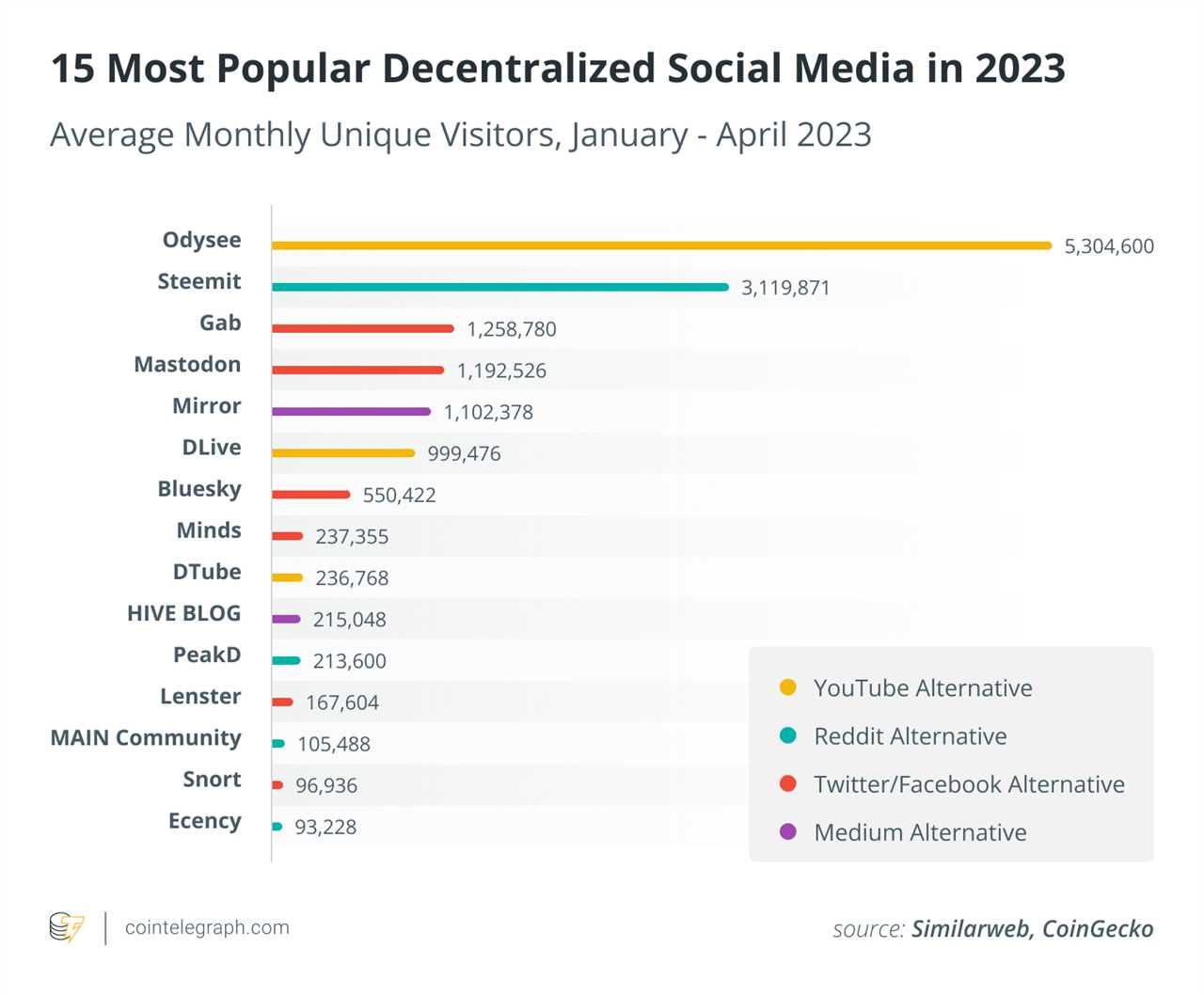
Despite the growing popularity of Friend.tech, many decentralized social networks are still facing challenges in attracting and retaining users on their platforms. According to industry executives, as much as 99% of new users in the decentralized social media (DeSo) space end up quitting due to issues with onboarding or lack of connections.
Tedious onboarding process
Ed Moss, head of growth for DeSo blockchain firm, DeSo, explained that the process of getting started with cryptocurrencies, including transferring them to a wallet and paying high transaction fees, can be both tedious and expensive for first-time users. Moss emphasized that ensuring a frictionless onboarding process is crucial to address this obstacle.

Barriers to entry
Suhail Kakar, creator of DeSo app Onboard, highlighted another challenge: users need to familiarize themselves with concepts like blockchain, smart contracts, and wallets, which can deter them from signing up. Kakar compared the situation to attending a party where you don't know anyone, emphasizing the importance of community building for DeSo apps.
Competition from existing social platforms
Catching up to the network effects of established social media giants like Facebook and Instagram presents another hurdle for decentralized social networks. Kakar believes that if top-tier creators and influencers shift to DeSo platforms, it may act as a tipping point, attracting more users with high-quality content.
Limited user base
Data shows that popular decentralized social media network Odysee had an average of only 5.3 million monthly unique users between January and April, in comparison to Facebook's 2.98 billion and Instagram's 2 billion monthly active users during the same period. This highlights the significant difference in user base between these platforms.
Limitations of current blockchain infrastructure
According to Moss, one reason decentralized social media hasn't gained widespread adoption is the limitations of platforms like Ethereum in providing scalable social media applications. Moss suggests the need for "storage-heavy" or "infinite-state" blockchains that can store large amounts of data at a lower cost, enabling users to truly own their content and identity.
Success of Friend.tech
In contrast to the challenges faced by other decentralized social networks, Friend.tech, a social platform powered by Base, has experienced significant success recently. It has attracted over 85,000 users from more than 127,000 wallets since launching earlier this month. However, some industry experts remain skeptical about the platform's long-term viability.
Growth projections for decentralized social media
The sales revenue from decentralized social media networks is projected to reach $12.1 billion by 2023, with an estimated growth rate of 23.6% per year, according to Future Markets Insights. This indicates the potential for substantial growth in the decentralized social media market in the coming years.
Other decentralized social media networks
Aside from Friend.tech, there are other decentralized social media networks in the market, including Jack Dorsey's Bluesky, Mastodon, and Lens Protocol.
Collect this article as an NFT to preserve this moment in history and show your support for independent journalism in the crypto space.






